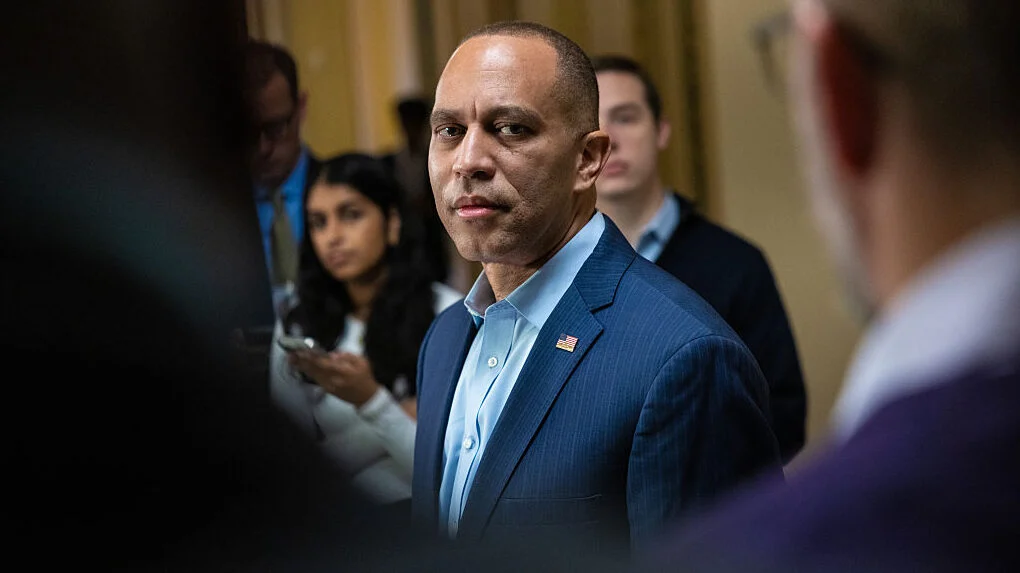Recent Arrest of Jan. 6 Riot Pardoned Individual Sparks Controversy
In a striking turn of events, Christopher Moynihan, a Jan. 6 Capitol rioter who was pardoned earlier this year by President Donald Trump, was arrested for allegedly threatening the life of Hakeem Jeffries, the Democratic leader of the U.S. House of Representatives. This incident plays into a larger narrative concerning the repercussions of the January 6 insurrection and raises pressing questions about the implications of pardoning individuals involved in violent acts against the government.
The Arrest and Threats
Moynihan was taken into custody by New York State Police after sending chilling text messages expressing his intent to “eliminate” Congressman Jeffries. The threats surfaced as Jeffries was scheduled to speak at the Economic Club of New York. “Hakeem Jeffries makes a speech in a few days in NYC I cannot allow this terrorist to live,” Moynihan reportedly wrote, further stating, “Even if I am hated, he must be eliminated, I will kill him for the future.” These alarming messages led to his charge of making a terroristic threat, a serious felony offense.
Background on Moynihan and Capitol Riot
Previously, Moynihan was among the first rioters to breach police barricades and invade the Capitol on January 6, 2021. His actions during that chaotic day led to a conviction in August 2022 for obstructing an official proceeding, resulting in multiple misdemeanor charges. At the time of his pardon, Moynihan was serving a noteworthy sentence of 210 months, which was cut short by Trump’s controversial decision.
Trump’s Pardons and Their Aftermath
The pardoning of Moynihan and over 1,500 other Jan. 6 rioters by Trump drew fierce criticism. Opponents of the pardons argued that many of these individuals were dangerous and posed ongoing threats to public safety. They warned that releasing these offenders without accountability would lead to further criminal behavior, a fear that has recently materialized. Following their release, several pardoned rioters have already faced charges for various crimes, highlighting a troubling trend.
The Broader Impact of the January 6 Insurrection
The January 6 event itself was a culmination of months of incendiary rhetoric from Trump, who falsely claimed the 2020 presidential election was stolen due to widespread voter fraud. Thousands of supporters congregated in Washington, D.C., under the belief that they could interrupt the official certification process of Joe Biden’s victory. This unprecedented attack on the Capitol led to violence, property damage, and the endangerment of lawmakers and law enforcement officers on duty that day.
Reaction from Hakeem Jeffries
Reacting to Moynihan’s arrest, Congressman Jeffries expressed gratitude to law enforcement for their prompt action. He stated, “I am grateful to state and federal law enforcement for their swift and decisive action to apprehend a dangerous individual who made a credible death threat against me with every intention to carry it out.” Jeffries further emphasized the implications of the pardon, remarking that individuals like Moynihan should never have been released, criticizing the broader systemic issue of pardoning violent offenders.
The Larger Conversation
This incident raises unsettling questions about accountability and the ongoing fallout from the January 6 riot. Leaders like Jeffries argue that today’s law enforcement resources are being stretched thin as they contend with threats from individuals who were granted pardons. The fact that some of these individuals have reverted to criminal behavior only serves to underpin the fears related to Trump’s decisions during his presidency, particularly regarding violence and extremism.
Through this recent arrest, the narrative surrounding the January 6 insurrection continues to evolve, further complicating the political landscape and shedding light on the challenges facing lawmakers and law enforcement alike in a society grappling with the repercussions of political extremism.



